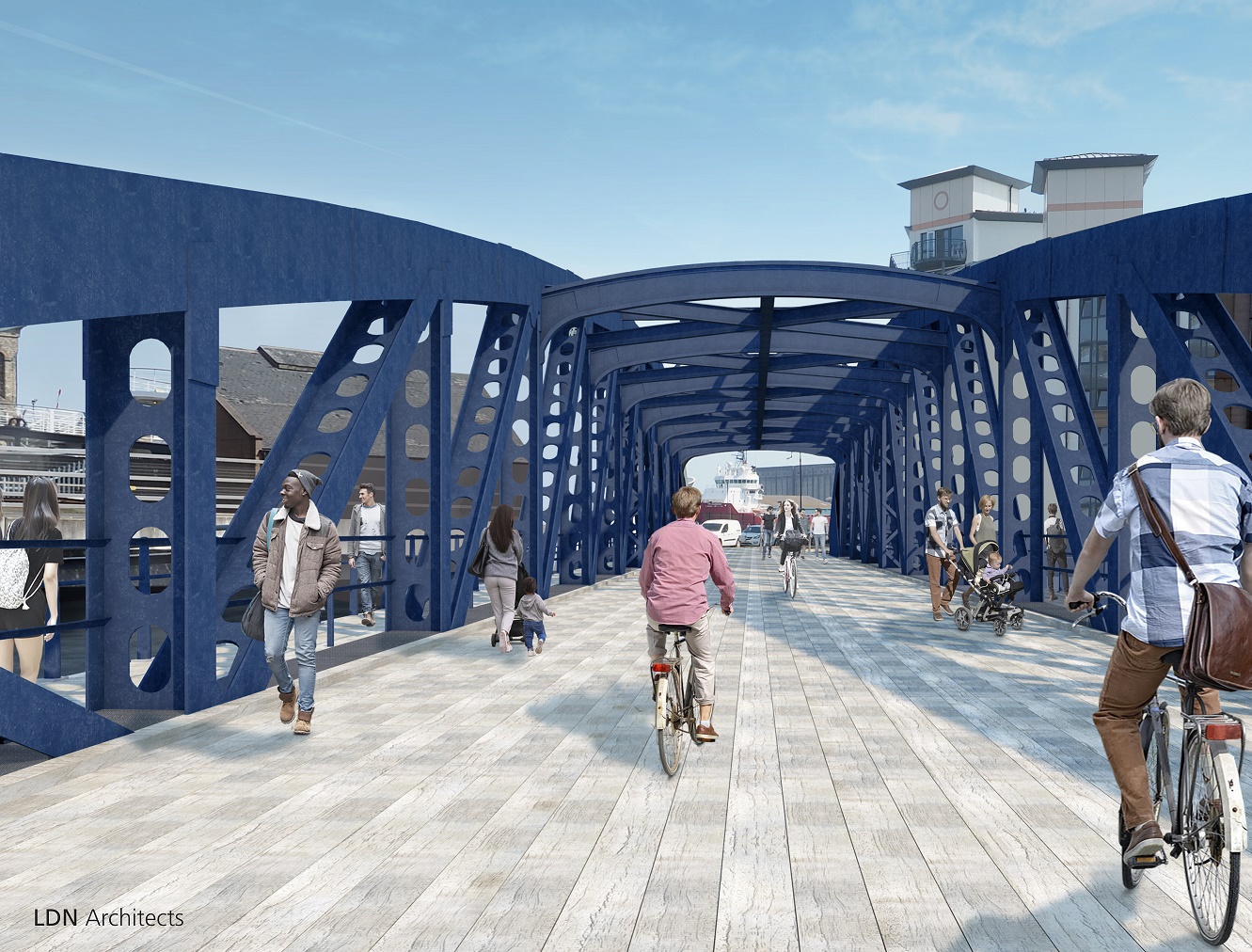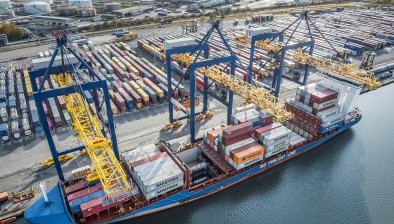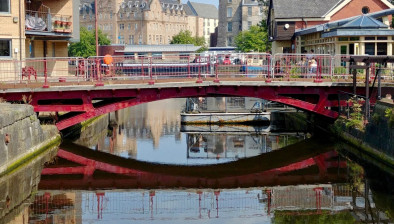Edinburgh grants listed building consent for Victoria Swing Bridge repairs
Forth Ports has been granted Listed Building Consent by the City of Edinburgh Council to fully repair the Category A Listed Victoria Swing Bridge located at the Port of Leith to conserve the bridge for the future and create a useable space for the local community.
About this development:
- Authority:Edinburgh City
- Type:Other
- Applications:
- Team:LDN Architects (architect), Forth Ports (developer)

Visual of the Victoria Swing Bridge proposals (Image by LDN Architects)
The private six-figure investment will see the bridge, which is the largest counterweighted swing bridge in Scotland, fully repaired, with a phased programme of specialist works which will protect the character and form of the bridge.
The repair programme is to be carried out in phases and includes the full refurbishment of the northern and southern walkways, re-decking the central carriage way, replacement of the decked turning circle areas and a full repair and repaint of metalwork on the bridge.
The refurbishment of the north and south pedestrian walkways – is expected to start this year, with the remaining work anticipated being undertaken in 2022. Pedestrian access to the bridge for the local community will be maintained for the duration of the works.
Charles Hammond, group chief executive at Forth Ports, said: “We are extremely pleased to have been granted consent to begin this programme of major repairs to The Victoria Swing Bridge which is an important landmark in Leith and will make an important contribution to the regeneration of the Waterfront. We want to deliver a useable space for the local community and we hope that once the bridge has been restored, people will be able to enjoy this space.”
The Victoria Swing Bridge was designed by Alexander Rendel and opened in 1874 to provide an efficient road and railway route for the port following the completion of construction of Albert Dock in 1869. The bridge was originally B listed but was upgraded to an A listing in 2014.
It is constructed of riveted wrought iron, timber and steel and originally carried a double rail track along its central deck (providing access for both trains and road vehicles) and features pedestrian walkways on either side.





















